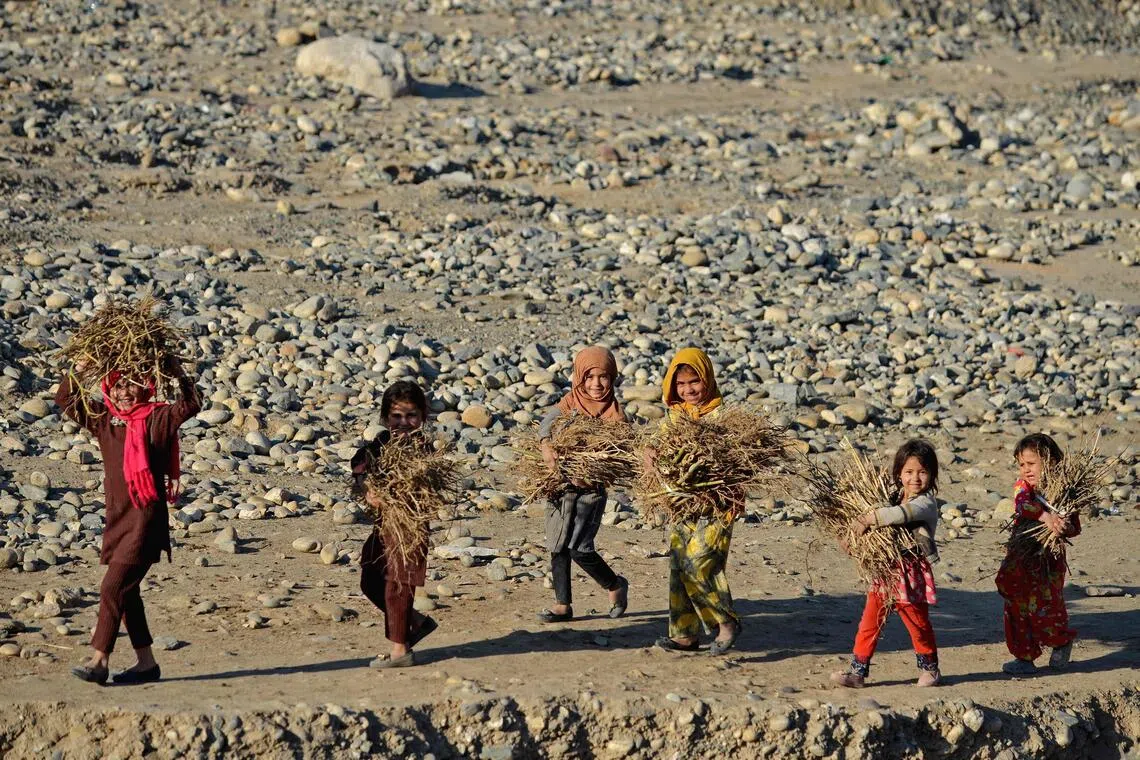Taliban government protests over Afghanistan not being invited to UN climate summit COP30
Sign up now: Get insights on Asia's fast-moving developments

Afghanistan is one of the countries which are most vulnerable to some effects of climate change, according to scientists.
PHOTO: AFP
Follow topic:
KABUL – The Taliban government expressed its disappointment on Nov 9 that it was not invited to the COP30 conference despite Afghanistan being one of the nations most vulnerable to climate change.
The 30th UN Climate Change Conference (COP30) opens on Nov 10, and is set to draw representatives from dozens of countries to Brazil.
Afghanistan’s National Environmental Protection Agency (Nepa) expressed its “deep concern over the fact that, despite Afghanistan being one of the most climate-vulnerable countries, it has unfortunately not received an official invitation” to COP30.
In 2024, the Taliban government, which is currently recognised by only Russia, sent a delegation to COP29 – but as a “guest” of host Azerbaijan rather than a party directly involved in the negotiations.
The Taliban authorities, which returned to power in 2021, believe that their diplomatic isolation should not prevent them from taking part in international climate talks.
“The exclusion of the Afghan people from the right to participate in this conference contradicts the principles of climate justice, global cooperation, and human solidarity,” the Nepa statement said.
Afghanistan accounts for approximately 0.06 per cent of global greenhouse gas emissions and is one of the countries which are most vulnerable to some effects of climate change, according to scientists.
About 89 per cent of the population depends on agriculture for their survival, according to the UN.
“Between 2020 and 2025, Afghanistan experienced repeated droughts, severely impacting coping capacities and drastically reducing groundwater levels, in some cases by up to 30m,” it said in April.
Ahead of COP30, the UN said that the year 2025 was on course to be among the hottest years ever recorded. AFP

